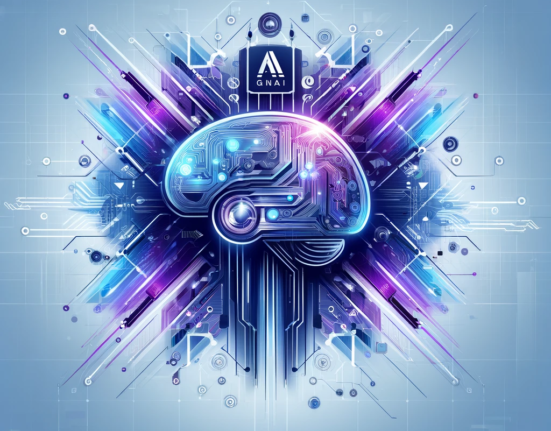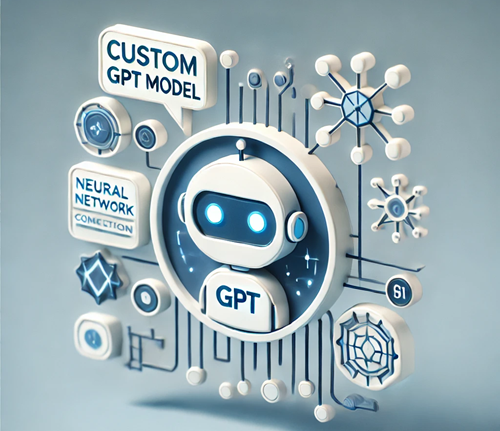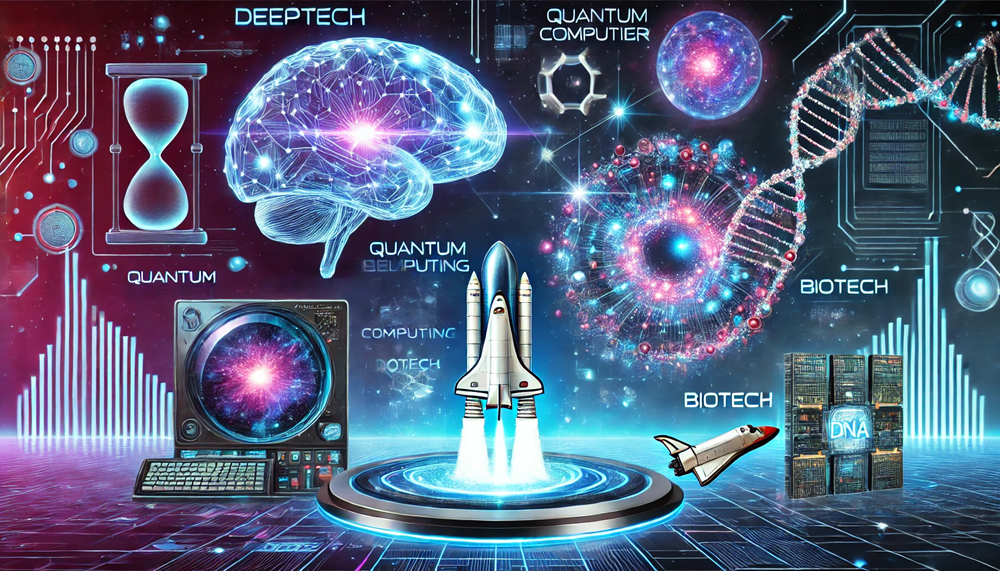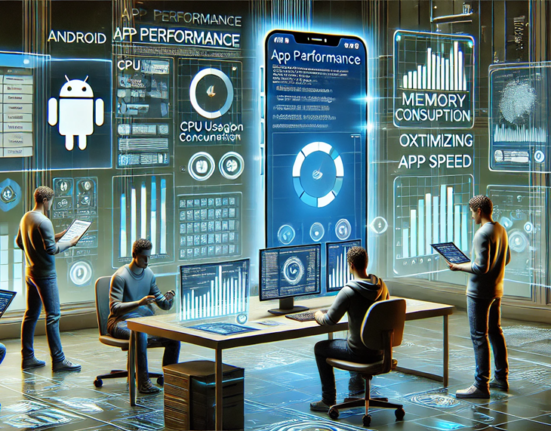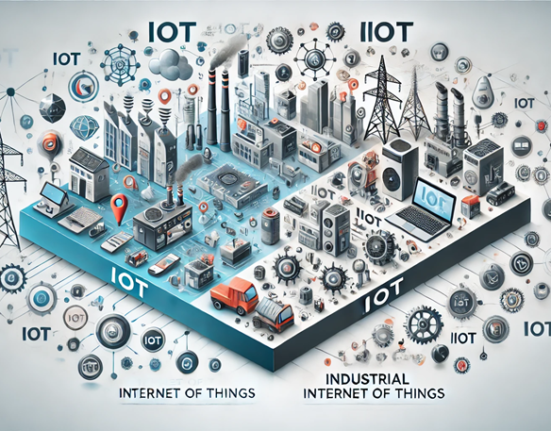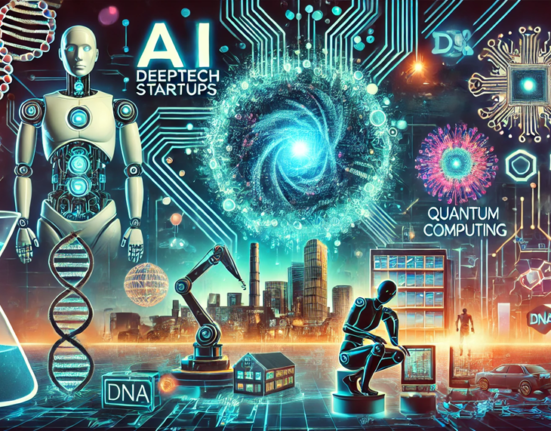Introduction: DeepTech – The Next Technological Frontier
In an era dominated by artificial intelligence (AI), quantum computing, and biotech, a new buzzword is taking center stage—DeepTech. Unlike traditional software-based startups, DeepTech startups focus on solving complex global challenges using advanced scientific breakthroughs. From self-learning AI to fusion energy and brain-computer interfaces, DeepTech innovations are shaping the future across multiple industries.
But what exactly is DeepTech?
How is it different from traditional technology? And why are investors betting billions on this emerging sector? Let’s explore.
What is DeepTech? Definition & Key Characteristics
DeepTech Meaning and How It Differs from Regular Tech
DeepTech, short for Deep Technology, refers to innovations rooted in scientific research, advanced engineering, and disruptive technology. Unlike conventional technology that builds upon existing solutions (such as mobile apps or SaaS platforms), DeepTech startups focus on breakthroughs in AI, robotics, biotech, nanotechnology, and quantum computing.
Key Characteristics of DeepTech Startups
- Heavy R&D Investment – Requires years of research and scientific validation.
- Disruptive Innovation – Offers breakthrough solutions rather than incremental improvements.
- High Risk, High Reward – Long development cycles but immense potential for impact.
- Strong Intellectual Property (IP) – Backed by patents and deep scientific expertise.
- Real-World Problem Solving – Targets major global challenges like climate change, healthcare, and energy sustainability.
What’s Different About DeepTech?
- Based on Scientific Discoveries – Unlike consumer tech (e.g., apps and e-commerce), DeepTech relies on physics, biology, and material science innovations.
- High Complexity, High Risk – Involves long R&D cycles, requiring billions in investment before commercialization.
- Disruptive, Not Incremental – DeepTech doesn’t just improve existing products; it creates entirely new industries and possibilities.
- Heavy IP & Patent Focus – Most DeepTech startups develop intellectual property (IP) that is difficult to replicate.
DeepTech vs. Traditional Tech: The Key Differences
| Factor | DeepTech | Traditional Tech |
|---|---|---|
| Innovation Type | Scientific breakthroughs | Software-based improvements |
| Development Time | 5-15 years | 6-24 months |
| Risk Factor | High risk | Lower risk |
| Market Entry | Requires extensive R&D and testing | Faster to market |
| Examples | AI, Quantum Computing, Biotech, SpaceTech | SaaS, Social Media, E-commerce |
Why DeepTech is the Future of Innovation
Tech giants like Google, OpenAI, Tesla, and SpaceX are betting on DeepTech because it pushes the boundaries of what’s possible. While software-based startups dominate today’s markets, the next trillion-dollar opportunities will emerge from DeepTech.
How DeepTech is Transforming Industries
1. DeepTech in Artificial Intelligence (AI) and Machine Learning
DeepTech is revolutionizing AI by moving beyond traditional machine learning to create self-learning AI systems, neuromorphic computing, and human-like reasoning models. Companies like DeepMind (Google), OpenAI (ChatGPT), and Anthropic are pioneering AI systems that think, reason, and create autonomously.
🔥 Trending Topics in AI DeepTech:
- Generative AI models like GPT and SORA AI
- Explainable AI (XAI) for ethical AI decisions
- Neurosymbolic AI combining logic with machine learning
2. DeepTech in Healthcare and Biotech
From CRISPR gene editing to AI-driven drug discovery, DeepTech is transforming healthcare by offering personalized medicine, longevity solutions, and new treatments for incurable diseases.
💡 Key Innovations:
- AI-powered drug discovery (e.g., Insilico Medicine)
- Synthetic biology to create lab-grown organs
- Nanomedicine for targeted drug delivery
3. DeepTech in Quantum Computing
Quantum computing is the holy grail of computation, promising to solve problems that classical computers can’t—such as drug simulations, cryptography, and material science.
🚀 Top Players in Quantum Computing:
- Google’s Quantum AI Lab
- IBM Quantum
- D-Wave Systems
With major breakthroughs in quantum supremacy, the future of computing will be dictated by quantum technology.
4. DeepTech in Space Exploration and Aerospace
DeepTech is fueling a new space race, with companies like SpaceX, Blue Origin, and Rocket Lab revolutionizing satellite deployment, asteroid mining, and even Mars colonization.
🌍 Trending Topics in Space DeepTech:
- Reusable rocket technology (SpaceX Starship)
- Interplanetary travel and lunar bases
- AI-powered space robotics
Types of DeepTech: Categories That Are Changing the World
DeepTech spans across multiple scientific and engineering domains. Here are some key areas:
1. Artificial Intelligence & Machine Learning
- Self-learning AI models (e.g., OpenAI’s GPT, Google DeepMind)
- AI-powered drug discovery (e.g., AI-driven biotech research)
- Autonomous AI systems that can think, create, and solve problems
2. Quantum Computing & Advanced Computing
- Quantum computers (Google’s Quantum AI, IBM Q)
- Neuromorphic computing (brain-inspired processors)
- Cryptography and cybersecurity breakthroughs
3. Biotechnology & Life Sciences
- CRISPR gene editing for disease prevention
- Lab-grown organs and tissues (synthetic biology)
- AI-driven medical diagnostics
4. Robotics & Automation
- Humanoid robots (Boston Dynamics, Tesla Optimus)
- AI-powered industrial automation
- Self-repairing robots for deep space and ocean exploration
5. Space Technology & Aerospace
- Space tourism and colonization (SpaceX, Blue Origin)
- Asteroid mining for rare minerals
- AI-powered space exploration and satellites
6. Clean Energy & Climate Tech
- Nuclear fusion energy (Limitless clean power)
- Advanced battery storage solutions
- AI-driven climate prediction models
These categories illustrate how DeepTech is not just about one technology—it’s an ecosystem of innovations solving global problems.
Goals of DeepTech: Why It Matters for Humanity
DeepTech isn’t just about innovation—it’s about impact. Some of its primary goals include:
1. Solving Complex Global Problems
From cancer treatments to climate change solutions, DeepTech is tackling the biggest challenges facing humanity.
2. Creating New Economic Opportunities
DeepTech industries are projected to be worth trillions of dollars in the coming decades, opening up new markets, jobs, and industries.
3. Advancing Human Capabilities
With brain-computer interfaces, genetic enhancements, and AI-powered assistants, DeepTech is pushing the boundaries of what humans can achieve.
4. Redefining Sustainability
DeepTech is enabling renewable energy breakthroughs, carbon capture technologies, and AI-driven sustainability efforts to combat climate change.
Why Investors Are Betting Big on DeepTech Startups
DeepTech Startup Funding is Skyrocketing
Despite its high-risk nature, DeepTech is attracting record-breaking investments. According to a report by BCG, DeepTech investment grew 40% annually in the last decade, reaching $60 billion+ in funding.
Top DeepTech Venture Capital Firms
- Sequoia Capital – Investing in AI and biotech
- Andreessen Horowitz (a16z) – Focus on AI, blockchain, and DeepTech
- Lux Capital – Investing in science and frontier technologies
Investors see DeepTech as the next trillion-dollar industry, making it one of the hottest investment opportunities today.
Challenges Facing DeepTech Startups
While DeepTech has immense potential, it comes with challenges:
- Longer Time to Market – Many DeepTech projects take a decade or more to commercialize.
- High R&D Costs – Requires billions in funding for research and experimentation.
- Regulatory Barriers – Biotech, AI, and quantum computing face strict regulations.
Despite these challenges, DeepTech’s impact is undeniable, and its growth is inevitable.
Use Cases of DeepTech: Real-World Examples
DeepTech isn’t just theoretical—it’s already changing the world.
🧬 Healthcare & Biotech
- AI-driven cancer detection (Google’s DeepMind)
- CRISPR-based gene therapy for genetic diseases
🤖 AI & Robotics
- AI-powered customer service (ChatGPT, IBM Watson)
- Autonomous delivery robots and self-driving cars
🛰 Space Exploration & Aerospace
- SpaceX’s reusable rockets reducing space travel costs
- NASA’s AI-powered Mars rovers collecting planetary data
🔬 Quantum Computing & Cybersecurity
- IBM’s quantum encryption for next-gen cybersecurity
- Google’s quantum AI solving complex mathematical problems
⚡ Clean Energy & Climate Tech
- AI-driven smart grids optimizing energy use
- Carbon capture technology reducing emissions
The Future of DeepTech: What’s Next?
Emerging DeepTech Trends for 2030
🔹 AGI (Artificial General Intelligence) – AI systems with human-like reasoning.
🔹 Fusion Energy – A limitless clean energy source.
🔹 Brain-Computer Interfaces – Merging humans with AI (Neuralink).
🔹 Self-Replicating Robots – AI-powered automation in manufacturing.
As DeepTech continues to evolve, it will redefine industries, economies, and the way humans interact with technology.
Conclusion: Why DeepTech is the Future
DeepTech is more than just a trend—it’s the next frontier of human progress. With breakthroughs in AI, biotech, quantum computing, and space technology, it has the potential to reshape industries and solve the biggest global challenges.
🚀 Whether you’re an investor, entrepreneur, or tech enthusiast, now is the time to pay attention to DeepTech—because the future is being built today.

